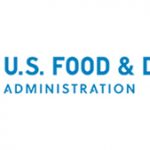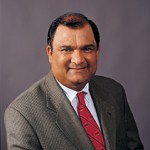Third-party audits are critically important to food companies. They are the primary tool your customers use to determine if adequate food safety systems are in place. This article covers some of the strategies and tactics you should employ to maximize your chances of a successful audit.
Does This Scenario Sound Familiar?
A big audit is coming up. The plant has been preparing for months and this is the final team meeting before the auditor arrives. At some point during the meeting the plant manager turns to the QA manager and says, “Are you ready for the audit?” The QA manager swallows hard and responds, “As ready as we are going to be.”
So much stress and so much pressure just to get a “good score”. Corporate wants to know what happened before the auditor even leaves the plant. Performance evaluations, raises, year-end bonuses and sometimes even jobs are at risk. It’s no wonder people worry about audits so much.
What if I told you it doesn’t have to be that stressful? It doesn’t if you implement some of the things I have learned over the years.
What Is an Audit?
I informally define an audit as verification that things are being performed to established rules. Those rules can be a customer contract, an audit scheme such as SQF or government regulatory standards. For this article, we are going to talk specifically about independent third-party audits.
Who Is an Auditor?
An auditor is a person.
It’s easy to forget sometimes. They are people with their own story, training and experience. They may be a retired QA director from a major food company with decades of experience. They may be a former plant QA manager in the automotive industry with no food experience. This may be their first audit. They have a story and that will influence your audit.
Few people know that you can choose who audits you. Make sure the person who is coming in to evaluate your plant has the right experience and temperament to work with you. Ask the audit company to provide you with three to five resumes of auditors that they would like to send to your facility. Arrange for interviews with them and choose the one that fits best. You are looking for the right mix of experience and temperament. You don’t have to take who they want to send.
What Is an Audit About?
An audit is an answer to a series of specific questions and how you meet them. This is key to how you should approach an audit. The PDCA model is an ideal way to remember this point (see Figure 1).

- Plan: What are the rules of the game?
- Do: What is your procedure?
- Check: What proof do you have that it was done?
- Act: What happens if it is not correct?
Let’s address these one at a time.








I like that you suggest using PDCA to prepare for an audit and you are correct that being organized and prepared for the audit is the best plan. I would say that Certification Bodies will likely not send you 3 to 5 resumes of potential auditors because they may not have 3 – 5 qualified auditors. GFSI auditors have to qualify in specific categories. So if they send them – they typically understand the process. The soft skills are most important and most difficult. Other third party audits (like GMP) do not have category qualification. There the request for auditor background may be helpful.
One thing to let the plants know is how to push back by asking to see where the audit trail they are following is located in the standard. Sometimes auditors drift to other standards or go off on tangents that are not in the standard – they are human and it happens. Knowing how to gently guide them back takes real skill.
It takes a lot of patience from both sides to go through the process. I’ve been on both sides of the table. I will say that I think it is wrong to base a bonus or someone’s job or anything really – on a two day snap shot of how things are going. It puts pressure on both sides that should not exist if we really want to focus on meaningful improvement.
Hi Tess
Great points. This is indeed a two way street and both sides need to contribute. The process of reviewing credentials and speaking with auditors beforehand is something I have been doing for years. You can learn a lot about the style of the auditor in just a few minutes. It’s just like hiring a new employee, you want the right fit.
Interesting article, and as a food safety auditor myself (though not certification) I can see a lot of merit in what you’re saying.
We ARE human; we have foibles, make mistakes and generally know less about your business than you do. The comment on auditing against a different standard is very valid – often we’re juggling multiple standards anyway (in my role, Supplier Assurance for a well known European snacks manufacturer, we have to juggle a GFSi standard, our own company requirements as well as retailer standards) on a regular basis. Nobody’s perfect and I know I for one welcome a good two-way audit where we both look at and learn about the process.
Audits give you the chance to look at your own factory from an outsider’s point of view and whether they be for certification or otherwise you should never treat them as a chore. You shouldn’t need to prepare for an audit – just keep doing what you’re doing, if it’s wrong your own internal audits should tell you.
We don’t bite 😉
Ok, some do!
Hi Daniel
I used to be on the SQF Technical Advisory Council. Auditor calibration was a constant topic and a challenge for every Certification Body. Auditors need to cover a lot of ground in order to have a good flow of business. You need to be able to go deep for a large range of standards if you want a steady flow of work.
Most auditors do what they do because the love it. It’s a chance to travel and see all kinds of operations and meet a lot of new people. The contribution to food safety is significant and an insight into an operation is always appreciated and gratifying. The key is finding that right match.
Thanks for commenting!